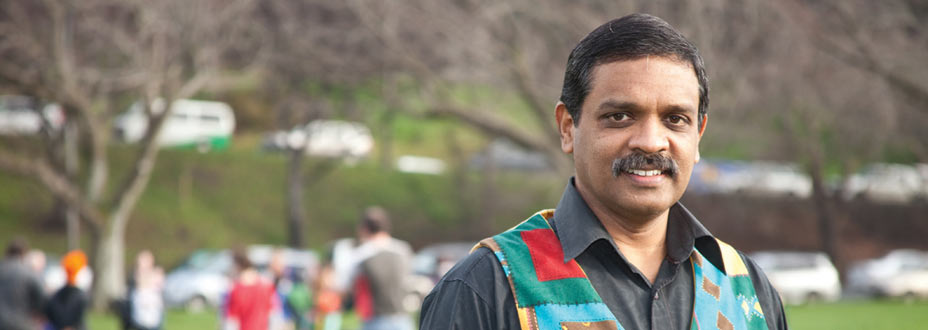
RWC left well-being unchanged
While the on-field action during last year's Rugby World Cup enthralled many, Dr Mathew Parackal (Marketing) was crunching numbers to see if the event enhanced national “well-being”.
Dr Mathew Parackal: His studies suggest well-being may be a better gauge of quality of life than a strictly "dollar-terms" measure.
Parackal is analysing data from a sampling frame of more than 200,000 New Zealand consumers to see whether an event that was designed to generate economic activity influenced well-being, which in economics is a measure of personal and social fulfilment rather than production and consumption indicated by Gross Domestic Product (GDP).
While GDP figures showed an increase of between 0.3 and 0.7 per cent in retail, accommodation and restaurant activity, well-being remained unchanged.
“From the grand opening, emotions were high and this momentum was sustained even after the final. But well-being measurements in the week following the final were no different to those of the previous weeks,” Parackal says. “This observation confirms well-being's homeostatic nature; it is not affected by external changes. The Rugby World Cup was good for New Zealand, but did not affect well-being, at least for the consumers in this study.”
Early indications from his studies suggest well-being may be a better gauge of quality of life than a strictly “dollar-terms” measure, such as GDP. New Zealand's well-being measurements are slightly below international standards, but solutions may start locally.
“The Dunedin City Council has released a draft social well-being strategy. The key challenges are improving living conditions and providing opportunities for people in lower socio-economic groups to earn enough to meet basic needs. Implementation of this strategy will generate data to shed light on the well-being versus GDP debate.”